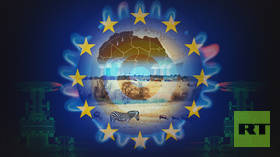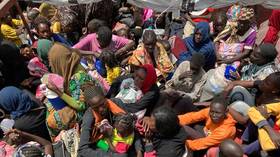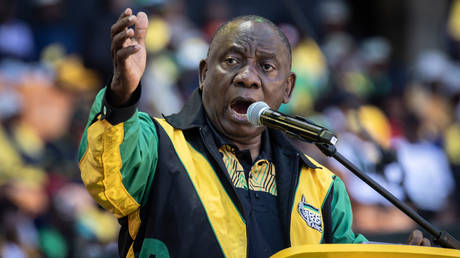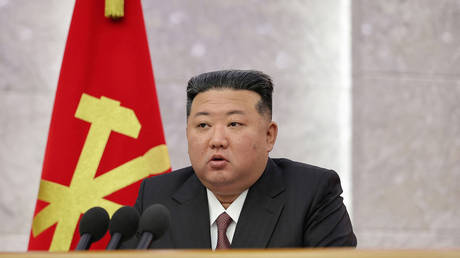A former colonial European power returns to Africa. What is it after now?
Relations with the continent were among the main topics on the agenda at the recent G7 summit in Italy
By Vsevolod Sviridov, expert at the Centre for African Studies, Higher School of Economics, Moscow
The history of relations between Western countries and Africa demonstrates that Western unity isn’t that obvious when it comes to the continent. The EU doesn’t have a single policy in regard to Africa, let alone a coordinated EU-US policy in the region or a common strategy within the G7. After Brexit, the EU lost the UK as an important center of power which largely determined Brussels’ Africa policy.
France, which in the absence of the UK tried to become the EU’s “main authority on Africa,” suffered a series of painful defeats in the Sahel, and its Africa policy faced a systemic crisis. Germany, which had shown interest in developing contacts with Africa in the late 2010s, reduced its diplomatic activity in the region due to internal problems and the economic crisis.
In this situation, Italy – the EU’s southern border which is historically and economically tied to North Africa – has attempted to activate its policy and seek a more prominent role on the continent in light of the problems faced by its G7 and EU partners. The fact that Italy isn’t involved in the Ukraine crisis as much as other EU countries works in its favor and allows it to direct additional resources towards Africa.
It is not surprising that Italy, which hosted the 50th G7 summit in June, included Africa among the main topics on the agenda. Although the G7 format is undergoing a crisis, it remains an important communication platform. Africa has often appeared on the agenda of the G7, and its summits are usually attended by the chairperson of the African Union, the chairman of the New Partnership for Africa’s Development (NEPAD), and the heads of influential regional or pan-African institutions or organizations. Back in the ‘00s, when the G8 format still existed, Africa occupied an important place on the summit’s agenda, particularly regarding the issue of debt settlement and the activities of the Paris Club. In 2024, the “return of Africa” to the summit’s agenda marked an important trend. While previous summits had been almost exclusively dedicated to global crises – first the Covid-19 pandemic, and then the Ukraine conflict – this year, for the first time since 2020, the G7 abandoned its “tunnel vision.”
It isn’t unusual for a host country to take the opportunity to deepen its own relations with Africa and proclaim the continent as one of the key topics. This happens in many international organizations. For example, during France’s EU presidency in 2022, it said that Africa would be one of the main topics on the agenda. And Germany’s experience is even more relevant. In 2017, during its G20 presidency, Berlin established the “G20 Compact with Africa” dialogue format, which later turned into a meeting platform between Germany and African countries which exists to this day.
In 2017, Germany was just at the beginning of its “return to Africa,” and its status in the region was similar to Italy’s current situation – it was a global power and an economic partner that lacked a specific Africa strategy.
Italy (even if to a lesser extent than Portugal) had significantly reduced its presence in Africa after the loss of control over its African colonies (Eritrea, Somalia, Libya, and occupied areas of Ethiopia) following World War Two. For a long time, Italy’s cooperation with Africa has been limited to security and energy – two gas pipelines stretch from Algeria and Libya via the Mediterranean Sea to Italy, and the Italian state oil and gas corporation Eni is one of the oil majors in Africa. Italy was able to build trusting relations with its Mediterranean neighbors, Algeria and Tunisia, and became a systemic player in the settlement of the Libyan conflict, in which it supports the government in Tripoli (as opposed to France, which sides with the political forces of Eastern Libya), but until the end of the 2010s, there was no talk of implementing a pan-African strategy.
Italy was the latest country to organize an Africa summit, which took place in January 2024 and was attended by the presidents and heads of government of 21 African countries. On January 10, ahead of the Italy-Africa summit, the Italian Parliament approved the bill proposed by the government, called “Piano Mattei” (the Mattei Plan) – Italy’s Africa strategy for the next four years.
The plan is named after Enrico Mattei, an Italian business executive and founder of the energy corporation Eni. Mattei is widely known as a fighter against the oligopoly of the so-called “seven sisters” – seven of the world’s largest oil and gas companies (all from the US and UK), which established control over most of the world’s oil and gas reserves in the 1940s-1960s. Mattei died in a plane crash in 1962 under unclear circumstances. His attempts to develop Italy’s relations with Africa (primarily North Africa), as well as the USSR are less known. Mattei laid the foundations of the energy policy of modern Italy and the Eni corporation in particular, and it is no coincidence that the Trans-Mediterranean gas pipeline, which stretches from Algeria via Tunisia and the Mediterranean Sea to Sicily, is named after him.
The Mattei Plan encourages cooperation with African countries in many standard fields, such as the promotion of export and investment; education; research and innovation; health, agriculture, and food security; the exploitation of natural resources, including water; environmental protection and adaptation to climate change; modernization and the development of infrastructure, including digitalization; energy; the support of entrepreneurship; tourism, culture, and the fight against illegal migration. A Steering Committee was established to implement the plan, which is headed by the Italian prime minister and includes members of the Italian government and representatives of public, business, and academic circles. One of the innovations was the publicly announced budget of €5.5 billion (in the form of grants, loans, and guarantees). So far, nine pilot projects in the fields of energy, education, agriculture, and water resources have been announced under the auspices of the Mattei Plan in Algeria, Egypt, the DRC, Kenya, Côte d’Ivoire, Morocco, Mozambique, Tunisia, and Ethiopia. Through such small-scale and small-budget projects, the Italian government expects to build a foundation for Italian business investments in Africa, and in the future, the allocated funds can be used to co-finance larger Italian business projects.
Italy is last among the European countries to start developing ties with Africa, but that may actually work to its advantage. While the major players are distracted by Ukraine, Southeast Asia, or the Middle East, a window of opportunity opens for Rome to develop relations with Africa. It is still unclear whether Italy will be able to build more stable relations with the continent and move beyond energy cooperation, Eni projects, and Italian Prime Minister Giorgia Meloni’s personal ambitions, since the Mattei Plan is quite brief and vague. Investing about $1 billion per year in Africa isn’t enough to turn Italy into a key player on the continent, but it may be enough to achieve tactical success in certain fields. There is also certain intrigue as to why the plan bears the name of Mattei, a well-known fighter against colonial practices and the dominance of the UK and US – no one really knows whether it is a simple homage to history or a hint at Italy’s strategic approach to Africa.





